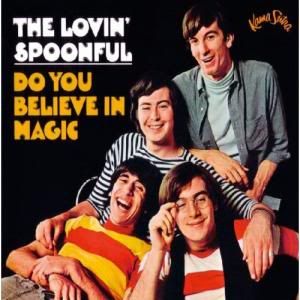Suffolk County, New York considers ban on retail sales of dogs
Humane puppy-traffickers will be only game in town
So, here's Suffolk County Legislator Jon Cooper's wicked smart strategy:
First: Shut down every single legal, licensed, regulated, inspected pet shop selling dogs in Suffolk County.
Second: Replace them with unlicensed, un-inspected, unregulated "rescues" and "shelters" selling dogs obtained in murky circumstances from "puppy mills" located hundreds and even thousands of miles away.
Third: What if every voter and taxpayer in Suffolk County doesn't want a shelter dog? Maybe someone would prefer a registered purebred for some strange reason, or maybe a puppy, and none of the few besieged hobby/residential breeders within a day's drive of their home have one? Maybe they don't want to wait a few years until the hobby breeder has a litter.

Go with the Marie Antoinette solution. That one really worked for her.
Fourth: Get the hell out of Dodge.
When frustrated pet lovers inevitably rebel because they can't find a puppy for the kids and turn to illegal, unlicensed, un-inspected, and potentially substandard and abusive sources--like people selling four week-old puppies out of the trunks of cars in supermarket parking lots--it won't be Cooper's problem. He can pretend he never heard of consumer demand.
Who will suffer? Who will benefit?
Want to read the text? Be my guest.
Who will suffer under Cooper's latest version of IR 1545-2011 is obvious: dog owners, pet store owners and their employees, pet-related businesses such as groomers, feed stores, trainers, dog walkers, boarding kennels, and vets. And the pets themselves.
But who benefits? That's an interesting question.

Humane puppy-trafficking among the glitterati:
Animal Rescue Fund of the Hamptons
Best Friends Animal Society's latest, most bestest friend is ARF of the Hamptons, a facility unable to find enough local dogs to stay in business, but reports assets and cash on hand in excess of $13 million at year-end 2009. Yes, some dog rescuers are not exactly cash strapped in Suffolk County's East End, where so much of Jon Cooper's support on IR 1545 comes from:
"Every animal the local animal control can’t adopt, ARF takes in. Still, ARF has to import adoptable animals from other parts of the country to keep its shelters from turning into a ghost town. Many of those animals come from Best Friends’ Pup My Ride, a program that transports dogs from puppy mills in the Midwest to the Northeast. . .
[. . .]We’re never able to get enough of those ["puppy mill"] dogs working locally with our municipal pounds or going into New York,” Michele says. “So when Best Friends approached us about taking in all these small breed dogs, we jumped at the chance.
Once the animals go up for adoption, they go very, very quickly.”
Based on documents submitted to the New York State Charities Bureau, as a 501(c)3, ARF's 22 acre compound located in Wainscott, New York was valued at a little over $5 million in 2009. The real estate holdings are exempted from property taxes.
ARF's almost $7 million in revenue from donations, investments and other sources in 2009? Not taxable.
The almost $93,000 ARF grossed on dog sales in 2009? Not taxable, either.
All in all, in 2009 -- a freaking tough year for most individuals, businesses and charitable organizations in the United States -- ARF's net worth went from $8,658,848 to $13,336,833.
Not bad. Which brings us to another item in Business Management 101:
Flip that inventory

ARF describes with great pathos the "puppy mill" dogs it obtains under unspecified circumstances at unknown cost. Whether they were seized from their owners, surrendered, or bought at auction, ARF tells a story of dogs that suffered from lack of proper veterinary care, forced over-breeding, psychological trauma and various physical ailments. They lived crammed into tiny cages, were never walked, were deprived of human contact and didn't know how to play.
Generally speaking and according to ARF, the dogs they bring into the Hamptons are a wreck.
Nevertheless, also according to ARF, upon arrival in Wainscott they get a bath and grooming, and promptly undergo surgical sterilization. Soon thereafter, an "amazing transformation" occurs which renders them immediately ready and available for life as a pet in the homes of Suffolk County families.
It seems the whole process--from wreck to amazing transformation--usually takes about two weeks. Those small breed "puppymill" dogs just fly off the shelf.
Nice work if you can get it
As a private, not-for-profit corporation, ARF and other Suffolk shelters and rescues are not required to comply with the humane standards of care required of pet stores and non-residential breeders.
New York State does not routinely inspect shelters and rescues as it does pet stores.
New Yorkers who purchase a pet from a shelter or rescue have no recourse under the state's "puppy lemon law" which only covers dogs purchased at pet stores and from other licensed "pet dealers."
And then there are all the tax advantages enjoyed by 501(c)3's.
Seems Cooper's not so pro-choice after all
The latest version of his proposal makes it absolutely illegal for lawfully operated Suffolk County pet stores to sell dogs under one year of age, unless the dogs come from a shelter or rescue.
Shelters and rescues, on the other hand, can continue to sell puppies and dogs without restrictions.
By legislating such a huge competitive advantage in the marketplace to one group of competitors, while denying lawful small business owners the ability to make a living, Suffolk County would be participating in dishonest trade practices.
And Suffolk residents will find it very difficult to find a puppy in the future. Will possession of a young dog become yet another act of conspicuous consumption among the wealthy? Beamer, summer home, havanas, and a puppy, any kind of puppy, to make the picture complete?
Cooper's problem with facts
Cooper's proposal is based on the wildest of internet rumors and animal extremist propaganda.
He profiled every single Suffolk County pet store owner offering dogs to the public as a profiteer furthering the crime of cruelty to animals. As a pit bull-owning gay man, Cooper must know a little something about negative stereotypes, but he flings them around with abandon.
In a public hearing in June, Cooper used the fact that pet store owners often obtain their dogs from kennels located in Missouri to "prove" that their dogs are the product of animal abuse. Although it made national news, he didn't seem to know that Missouri's statutes covering dog breeders are now probably the most stringent in the country.
Crap, he compared the American Kennel Club and its members to "puppy millers."
Is this all too bizarre, or what?
The hand that feeds Jon Cooper
Cooper is a lame duck. After 12 years in the Suffolk County legislature, he is term-limited. He's looking for a new gig. State Senator Carl Marcellino's job is looking mighty tasty, too.
“I will spend whatever it takes to defeat you" ? Really? And whose deep pockets are those bucks going to come from?
What makes me think Cooper's sugar-daddies have no interest in responsible pet ownership?
Keep Suffolk Pet Friendly.


I love their two week turn-around. I just got back a dog I bred - I've been trying to get him back for about 4 years, but the family has moved multiple times etc. - long story. His situation was one of neglect - nothing like the "deplorable" conditions those truckloads of dogs come from. He has no mental issues I have discovered - just lack of training. His coat and skin were a mess - untreated food and flea allergies. I've had him for 2 months now and I think he will be ready to rehome in another month or so. I would LOVE to know their two week turnaround secret.
ReplyDelete(It's not easy to convey sarcasm in a post - I hope you all got that.)
There is another angle to large scale interstate dog rescue, that of spin-off profit-making and what happens to those funds. The "donations" that serve as quid pro quo when adopting rescue dogs are generally invisible and untaxed. We can assume by the shared philosophical views of at least some of those involved in rescue that money flows from adopters in many directions including to out of state shelters and rescue groups as well as the commercial transporters. Some percentage of these funds is surely directed at other agendas involving animals. Secondary donations by those involved with rescue to H S U S and A S P C A help pay the staff lobbyists and attorneys of those organizations whose actions inhibit freedom and increase the cost of poultry, meat and other animal products and enterprises. Indeed dog rescue involving massive interstate transport, can be viewed as a loss leader for animal rights activism nationally. Witness the Sarah McLaughlin A S P C A television commercial to grasp this. This latter organization operates a pet shelter in NYC only, yet lobbies in many state legislatures for initiatives unrelated to dog welfare. H S U S operates no shelters anywhere. Targets include biomedical research, animal agriculture, hunting, rodeo, circus etc. Dogs attract more cash than chickens. Yet things like chicken consumption and drug testing are the targets. This is all a subtle form of societal subversion perhaps best addressed with a RICO action one day. We can hope.
ReplyDeletehttp://www.ilfb.org/viewdocument.asp?did=20390&r=0.4534723
ReplyDeleteProducer: HSUS plan will raise egg prices
Tuesday, July 26, 2011
Its cost him, but Keith Mussman over the years has been more than willing to give his birds some space.
But the Northeastern Illinois egg producer fears a proposal to nearly double cage space afforded hens would significantly boost egg costs and, potentially, crowd out cost-sensitive producers.
Mussman Back Acres, Grant Park, is Illinois top egg-producing operation and a family venture for more than a half-century.
Mussman questions legislation drafted by the Humane Society of the United States (HSUS) and the United Egg Producers (UEP) that would require a projected $4 billion in industry investment in enriched housing systems over the next decade.
The plan proposes a roughly 18-year timeframe for henhouse upgrades, specific consumer egg labeling requirements, and standards for feeding, watering, and euthanizing hens.
The Mussmans are subject to U.S. Food and Drug Administration (FDA) food safety inspections as well as USDA overview and U.S. Environmental Protection Agency poultry waste regulations. He is wary of an added federal presence to measure bird cages.
This ultimately is going to raise the cost of eggs, Mussman warned FarmWeek. The buildings are going to be more costly, and were going to have fewer birds in the building. It has to drive the price up.
And I think were a little concerned about having this much more government involvement in regulating the way we produce eggs. Regulation always adds cost. The other thing is, this is not my first rodeo: Weve seen HSUS in action before, and I dont think it can be trusted.
During recent Washington discussions, Illinois Farm Bureau National Legislative Director Adam Nielsen noted solid House Ag Committee opposition to the HSUS-UEP plan. Ag lawmakers fear the measure poses a perilous precedent for other livestock groups, and it appears dead on arrival at least in the House, Nielsen related.
Mussman was surprised HSUS agreed to such a long phase-in period for housing changes, but could not conceive of new standards being cost-effective even with gradual transition.
He already complies with the industrys UEP Certified Animal Care program, which outlines and audits building temperature, water, and other on-farm conditions.
Mussman has voluntarily expanded per-bird space over the past five years and, with FDA, instituted a massive clean-out program to ensure henhouse sanitation between flocks.
All those things have added tremendous costs, but having said that, I think were probably producing safer eggs, Mussman said. Weve been doing this as efficiently as we possibly can. Any more changes we have to make are going to add to cost.
For More Info Contact:
John Hawkins, News Service Director
Phone 309 557-2237 Fax (800) 640-1995 E-mail jhawkins@ilfb.org
Copyright © 2011 Illinois Agricultural Association ®
Cooper is looking for nothing more than to push his career. Hopefully, it will be off a cliff. He is backed by the organizations that prey upon the sympathy of caring human beings. Sadly, the dogs see very little of the monies collected. Instead, the money is used to back political scum, like him. This is the most ridiculous bill ever proposed!! He hasn't a clue, as to the affect this will have on Suffolk County. And, does he REALLY think this will stop the sale of puppy mill dogs?? What's next..The ban on having children, forcing people to adopt?? All this will do, is create a black market for puppies and make the situation even worse than it is. Why not set higher standards for the puppies that get sold in Suffolk. Set standards for pet shops. Those that don't comply would get fined.....Just like any restaurant or beauty salon would, for not following board of health standards. Eventually, that store would go out of business because of lack of business or, too many violations. His solution is NOT a solution. It's a bigger problem. Nazi Germany started like this. What happened to AMERICA???
ReplyDeleteWait. So just because people MAY choose not to follow the law, a proposal to ban milled and irresponsibly-bred dog sales is a bad thing?
ReplyDeleteAnd, yes, EVERY DOG SOLD in a pet-store environment comes from either irresponsible breeders or puppy mills. Period. Breed club code of ethics absolutely ban such a thing.
First of all, breed clubs don't get to ban stuff. They are clubs, not county legislatures. If someone joins a club and adheres to its rules, that's hunky dory. But it's not a matter of law.
ReplyDeleteI understand from your use of "irresponsible breeder" and "puppy mill" that you believe that every single pet store owner in the country furthers the crime of cruelty to animals.
Must be nice to have your own private reality.
The Code of Ethics in a breed club DOES ban certain behaviors by members of that club. If they violate the Code of Ethics, they are suspended or barred from membership. This is one of the reasons that, when looking for a responsible breeder, you look for one that is a member of the national breed club and one that positively confirms they abide by that club's code of ethics.
ReplyDeleteNo responsible breeder ever allows a puppy of theirs to be sold in a retail establishment. Period. While the proprietors of such establishments may not directly contribute to abuse, they contribute to irresponsibility, which often leads to abuse.
If one wishes to acquire a purebred dog, one has two sources to acquire that dog: a) a rescue or shelter or b) a responsible private breeder.
There is no third option.
puh leeez
ReplyDeleteYou are attempting to equate "responsible" with "hobby." "Hobby" breeders are, by definition, un-inspected, unregulated and unlicensed.
What makes me think that if you were ever able to shut down all the licensed, regulated and inspected breeders, you would then go after the "responsible" ones?
As for options for puppy buyers:
Pedigreed dogs from licensed, regulated and inspected sources: Not an option, as far as you're concerned
Shelters and rescues: almost never offer pedigreed dogs, just as they very rarely sell small dogs and puppies in many parts of the country. Not an option, in practical terms, for many people.
So who's left standing? "Responsible" breeders who are either aging out, or being closed down by limit laws, zoning restrictions, the expense of pursuing a hobby, or the neighbor's continual accusation that they are a backyard breeder/puppy miller/dogfighter/sanitation crisis/disturber of the peace and so on ?
Whaddaya know? Not many options at all. But that's just what you want, isn't it?
Yet the "hobby" breeders are the ones who health test and title their breeding stock, who are active in the dog world, who are active in their breeds, who are always striving to to learn more and create a more perfect dog, who carefully screen buyers and follow up on the dogs they create. They are the ONLY breeders you can responsibly support. And, frankly, they are thriving in general. Yes, some have had to adjust to legislative changes, which they did, gladly, for the love of the breed. After all, for those people, the money isn't the issue. It's the breed that is the focus.
ReplyDeleteFor the record, I've been a professional conformation handler and have every intention of purchasing a performance/conformation pup from a responsible "hobby" breeder in the near future. I have EVERY desire to see them succeed and continue.
However, my current dog, a purebred Smooth Collie, was indeed a shelter pull. He's been ILPd, has finished his first herding title, is going to be working on more next year (ran out of trialing funds, ugh), is trained to OA level and might compete in agility next year, and will be started in tracking the year after that, if not next year.
There are PLENTY of purebred dogs in shelters and rescues that can be easily ILPd through the AKC and compete in performance/working events once they are neutered. They are a perfect option for the casual pet owner as well as the low-level performance enthusiast. For conformation and, perhaps, higher levels of performance/working, responsible hobby breeders are often a better choice (although many rescued dogs do just fine in high-level performance), simply because you have a better chance of having a truly sound dog and have some idea of the level of working drive produced in those lines.
The point is, there is NO reason under the sun for us to support the practice of selling dogs in a retail environment. None.
You can "support" whoever you want. That's your choice, and its fine with me.
ReplyDeleteIt becomes another matter entirely when, just for example, the county legislature tries to close down lawful and humanely operated businesses.
Hobby breeders cannot supply market demand for puppies. They simply cannot. You think they're thriving? I think you see only what you want to see.
You want to add "baby puppies sold out of the trunks of cars" as option #4?
http://news.nationalgeographic.com/news/2006/01/0130_060130_puppies.html
Cause that's what you are setting up.
Hobby breeders can actually supply demand for homes that deserve a puppy. It's those who don't that purchase from BYBs and mill outlets to begin with. Those people really don't deserve a dog. It's not some sort of inherent right.
ReplyDeleteAnd my ideas would be to require the alteration of all female dogs that don't meet certain criteria, complete with stiff penalties for those that fail to do so and for any resulting litters. You get caught selling those pups? You spend a bunch of time picking up trash on the highway or feeding the homeless.
We MUST create a culture where breeding a litter is a rare exception, not a rule.
Right on as usual, BDS.
ReplyDeleteWhat I find funny about this whole Animal Farm world we live in is the fact that it's OK for shelters to sell farmed puppies but not OK for pet stores. WTF?
I'm sick of the term 'adopt' when referring to shelter and rescue dogs. They aren't adopted, they are bought. And sold. The goal of these outfits is to corner the market, which is a lucrative one. They've already brainwashed a lot of people into believing that the most messed up dogs should be sought out as pets.
If these poor waifs are in such dire straits - and I believe that many are - then why are they suddenly OK to be sold as pets?
They hypocrisy can make your head explode if you dwell on it.
The issue of unregulated, uninspected shelters and especially private rescues drives me crazy. That's where we need some oversight, not among breeders who show their dogs and take good care of them.
Pet owners had best wise the hell up or one day the Johnny-Come-Lately Animalib crew will have won. No. More. Dogs.
I can't resist commenting on the arrogance of the poster above me. 'Deserve' a puppy? Who will be arbiter of that?
ReplyDeleteWe must create a culture where all the myths about dog overpopulation, nasty greedy breeders, the deserving vs the non-deserving. the fact that shelter dogs die because of the public and more are completely debunked and a thing of the past.
I'm sick and tired of bitter people who can't see past their own tiny snapshot of the situation trying to make dog breeding and ownership a bad thing. It's a good thing, one of the best aspects of life in my opinion. It's not a crime to breed and own dogs - yet - although the HSUS and its minions would love to see it. That's why they lobby for "pit bull" LOL bans - casts a huge net and wipes out a lot of nice dogs.
Gee, I feel like Columbo - just one more thing:
ReplyDeleteShelters almost never have purebred dogs - they just think they do because of the way the dog looks to their inexperienced staff.
The only way to identify a purebred dog is by the marking - a tattoo or microchip - which reveals the vital stats and ownership of the animal.
Purebred animals, including dogs, are marked and registered by law. All others are mixed breed dogs regardless of their appearance to a shelter person - which is fine by me, I am not a dog snob and like mutts as well as my show dogs. I've had both.
When purebred dogs are picked up they are almost invariably returned to their owners or their breeder.
And that's a fact.
Question for BDS: Are the shelters down there such as the ASPCA selling different dogs at different prices? They've started that up here I'm told, little ones obviously costing more. It's a practice that just piles on the hypocrisy to their 'save one until there are none' mantra. btw They mean it - until there are none. Very clever propaganda in that saying.
The ignorance displayed here is simply astonishing.
ReplyDeleteWhile a few outfits claiming to be shelters and rescues are shady, the majority do not post any sort of profit and the animals are being vetted and fixed PRIOR to rehoming.
Those simple facts make them nothing like retail pet shops, who do make a profit, who release dogs intact and don't even bother with a spay/neuter contract. In addition, most rescues require a rather extensive vetting process prior to adoption, which pet stores do not do.
In all, most rescues/shelters have quite a bit in common with responsible breeders and nothing whatsoever in common with puppy mill outlets.
And it IS irresponsible breeding and ownership that cause dogs to die in the shelters. Period. If every person owning a dog were to acquire it from a responsible breeder and to act as a responsible owner, the dogs needing shelters would fall to nearly zero. It isn't the responsible breeders who are creating the dogs in the shelters/rescues. Those breeders do a great deal of due diligence before sale and follow-up after sale. Their dogs go on a return-to-breeder contract, and they follow up. It's irresponsible breeders who produce the dogs that produce the shelter population. period.
As for the idea that there are never any purebred dogs in shelters/rescues, that's just laughable. We get them in, WITH AKC PAPERS, all the time. Of course, when you look at those papers, you can tell the quality of the breeding, and it's usually quite poor.
And, sorry, but breed experts CAN tell if a dog is purebred with as much certainty as you can assume BYBs and Puppy Mill dogs are purebred.
My dog could easily have finished in the breed ring if his ears had been properly taped. I've had that confirmed by some of the better breeders in my area.
Look. Rescue started off with the responsible breeders and would fail to exist without them.
Sadly, too many are being told lies by the pro-dog abuse lobby, such as the NAIA, and are being scared s-less and responding badly. On the other end, too many well-meaning animal advocates are being scared s-less by PETA and other such organizations, and are responding badly.
We need moderation. A meeting of minds. We need to WORK TOGETHER to shut down puppy mills, retail pet stores, and backyard breeders. If we don't, the dogs will continue to pay the price, and, frankly, I'm tired of it.
Caveat! Great to have you back!
ReplyDeleteAnd Redfiona? uh. . .not so much.
Do you read anything but your own drivel, RedFiona? Here's a little quiz for you:
The best info we have on the source of dogs in shelters attributes ___ % (fill in the blank, Red F) to dogs from pet stores:
a. 50%
b. 25%
c. 5% or less
hmmmm?
5% or less, direct source. However, you are missing (or ignoring) two things with that data.
ReplyDelete1. How many of the shelter dogs had a parent or grandparent purchased at a puppy mill outlet? And how many were originally purchased there, but were sold to another owner prior to going to the shelter?
2. My view are ALSO focused on BYBs, which make up most of that other 95%.
Going after puppy mills is ONE part of the equation, but an important one overall, at least in terms of reducing the suffering of dogs in the US.
Go ahead. Try to move the goalposts.
ReplyDeleteActual facts can be such an obstacle to small-minded unsubstantiated personal opinions based on animal rights-inspired bullshit, can't they?
So you've moved on to "BYB's" from the "retail establishments" you started out bashing? And yet rescues worth many millions of dollars yet still flip "puppy mill" dogs within two weeks of arrival get a pass from you. How much "rehabilitation" and "extensive vetting" does ARF do in the two weeks that already includes major surgery?
You're an arrogant cheat and a liar. Your goal is simply to reduce the number of dogs bred. By anyone, for anyone.
And I gotta tell ya, I don't think your ILP'd collie exists. Unless maybe his name is Wayne.
You can get your own blog. Buh-bye.
Hi BDS,
ReplyDeleteThanks for your wonderful post and comments on this issue. As you are likely aware, we are battling these issues in California with several communities having already enacted bans on all but shelter/rescue sales in retail outlets. The latest area to fall victim to this ill-advised marketing plan for pets is the City of Glendale. The city council, with "help" from CAPS and Best Friends, has drafted an ordinance. In the text of the presentation, they state," On June 23, 2011, CAPS engaged in an inspection of a retail pet store within the City of Glendale. This store is the only remaining pet store within the City that currently sells companion animals from commercial breeding facilities. While there were no dogs in the store at the time of the inspection, CAPS was informed that the store could order any kind of puppy and that some of the dogs were obtained from the same large dog brokering facility mentioned above." [Hunte}
http://www.ci.glendale.ca.us/government/council_packets/Reports_081611/CC_8b_081611.pdf
Since when is a private group with an agenda allowed to do official government inspections? CAPS admits on their website their bias against pet store sales and also brags about having pet stores driven out of business. Instead of applying the AETA against these terrorists, our idiot government officials are placing them in positions of power and allowing them to draft ordinances.
If there is but ONE store, that has no dogs for sale on the premises, how does the ordinance "reduce demand for for dogs from puppy mills and cats from kitten factories". Also to quote from the background information, "It will encourage pet consumers to adopt dogs and cats from shelters, thereby saving animals' lives and reducing the cost to the public of sheltering animals." Yeah, right. This is just another feather in CAPS's cap.
For those unfamiliar with CAPS, they are a nationwide group devoted to shutting down pet stores and purported "puppy mills." Look out, They will be spreading this drivel across the nation I am sure.
http://www.caps-web.org/
The west coast division of CAPS is headed up by Carole Raphaella Davis. Her qualifications? She is a former Playboy playmate and "B" movie actress who knows zip about animal husbandry. Unless starring in "Pirahna II; The Spawning" looked spiffy on her resume?
Thanks again. Unlike RedFiona I believe that lower income inidividuals, families with children and senior citizens deserve to have the companionship a pet provides. I believe it is a RIGHT to own a pet, just we have the right to vote, to live in peace and to own property without interference from busybodies.
Interesting points brought up. Any idea on what the ratio might be for people buying purebreds vs adopting dogs from the shelters?
ReplyDelete-Jackie